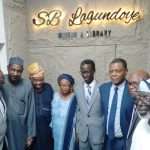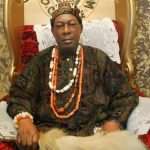


Fẹ́mi Akínṣọlá
The legacy of the slave trade profoundly impacts Nigeria’s socio-economic landscape and cultural identity. These historical atrocities resonate today, influencing economic opportunities, social cohesion, and the overall well-being of communities. Acknowledging these effects is crucial for understanding contemporary challenges.
President Trump’s rhetoric reflects a transactional view of international relations reminiscent of colonial attitudes, prioritising American interests over genuine partnerships with African nations. His derogatory remarks perpetuate negative stereotypes and foster feelings of inferiority among Africans. Furthermore, his administration’s trade and aid policies risk economic exploitation, echoing the historical extraction of African resources. This manipulation underscores Nigeria’s need for vigilance in navigating external influences.
The transatlantic and trans-Saharan slave trades were characterised by significant contributions from European and Arab traders, resulting in the forced migration and exploitation of millions. Islamic traders justified slavery through religious interpretations, while European powers, particularly those with Christian foundations, also played a prominent role. Many missionaries provided theological rationales for slavery, claiming it was a means of civilising Africans. This deceit deepened racial hierarchies and contributed to systemic injustices that persist today. Although some missionaries genuinely sought to improve education and healthcare, the duality of their legacy complicates the narrative, as the harmful impacts often overshadow positive contributions.
Cultural erasure from the slave trade has led to identity crises, particularly among youth struggling to connect with their heritage. The psychological scars manifest in various mental health issues and affect community cohesion, complicating healing efforts. A collective narrative acknowledging this painful history is essential for fostering unity in Nigerian society.
The legacy of exploitation shapes Nigeria’s international relations and complicates trust with other nations. Corruption and nepotism within leadership perpetuate cycles of marginalisation among vulnerable populations. Addressing these systemic issues requires a global perspective on modern slavery, recognising its ongoing impacts on race relations and economic disparities.
Incorporating narratives of resistance highlights the resilience of communities striving for dignity and justice. Education reforms that include a comprehensive history of slavery can foster awareness among younger generations. To achieve this, curricula should integrate the experiences of enslaved individuals, the impact of the slave trade on local cultures, and the role of resistance movements. Engaging students in critical discussions about these topics can empower them to understand their heritage and the complexities of their identity. Additionally, interactive learning experiences, such as community projects and cultural exchanges, can help bridge the gap between historical narratives and contemporary realities.
Cultural revitalisation initiatives are crucial for reconnecting communities with their heritage and restoring pride. Historical accountability through truth-telling about the roles various entities played in the slave trade can facilitate reconciliation and foster a more just society. Strengthening institutions, promoting good governance, and empowering grassroots movements advocating for the oppressed are essential steps towards breaking free from the remnants of modern slavery.
In conclusion, the impacts of the slave trade are deeply embedded in Nigeria’s socio-economic and cultural fabric. Acknowledging these issues is vital for meaningful progress towards a more equitable society. Understanding this historical context allows for a nuanced view of contemporary challenges, fostering dialogue that can pave the way for healing and reconciliation. The legacy of the slave trade is a living reality that continues to influence millions in Nigeria today. It is incumbent upon current and future generations to confront this legacy, ensuring that the lessons of the past inform the paths we forge towards a more inclusive future.
Copyright Notice:
Copyright © 2025 Fẹ́mi Akínṣọlá. No part of this publication may be reproduced without the author’s permission.








